Navigating an era of Christians, Krishna, plants and peace with an obscure Colombian spiritual movement.
On February 4th 1962, a solar eclipse obscured Mexico City between 2 and 3pm, likely Central Standard Time. The age of Aquarius was upon us, announced a man named Víctor Manuel Gómez Rodríguez. The Piscean age of close-mindedness was over, and time be damned if he was 90 or 600 years off, as many Astrologists claimed. He declared he was the official messenger of the era, “giving the content of a cosmic letter,” and that Dionysian waves, emanating from the Greek god of wine, madness and religious mysticism, had traveled to Earth and set off a time of revolution and explosiveness.
Rodríguez was born in Colombia in 1917 to Catholic parents who sent him to a Roman Catholic Jesuit school. Sometime between that and arriving to Mexico City in the late 50s, he had gone religiously rogue and gained a substantial following in Latin America, founding what he called the Universal Christian Gnostic Movement. He published books on aliens, consciousness, and Tantric yoga under his new spiritual name, Samael Aun Weor. He claimed that the Koran, Bible and Bhagavad Gita had been misinterpreted and the masses misled. He posited that Jesus Christ, Buddha, Krishna and other divine figures of world religions were similarly carriers of cosmic messages that would bring people closer to discovering his all-encompassing, benevolent God.
Several years after his death in 1977, a group of men who grew up in Manizales, a city in Colombia’s primary coffee-growing region, caught wind of his teachings and blended them with Vedic Hindu philosophy and indigenous plant worship. They spent time with native groups in the Colombian Amazon, adopted spirit names and founded a new following called Gnostic Shamanism and a movement called the Revolutionary Gnosticism of the Consciousness of Krishna. They established self-sufficient, spiritual farm communities in Colombia as well as Bolivia, Chile, Ecuador and England with new followers searching for that same God.
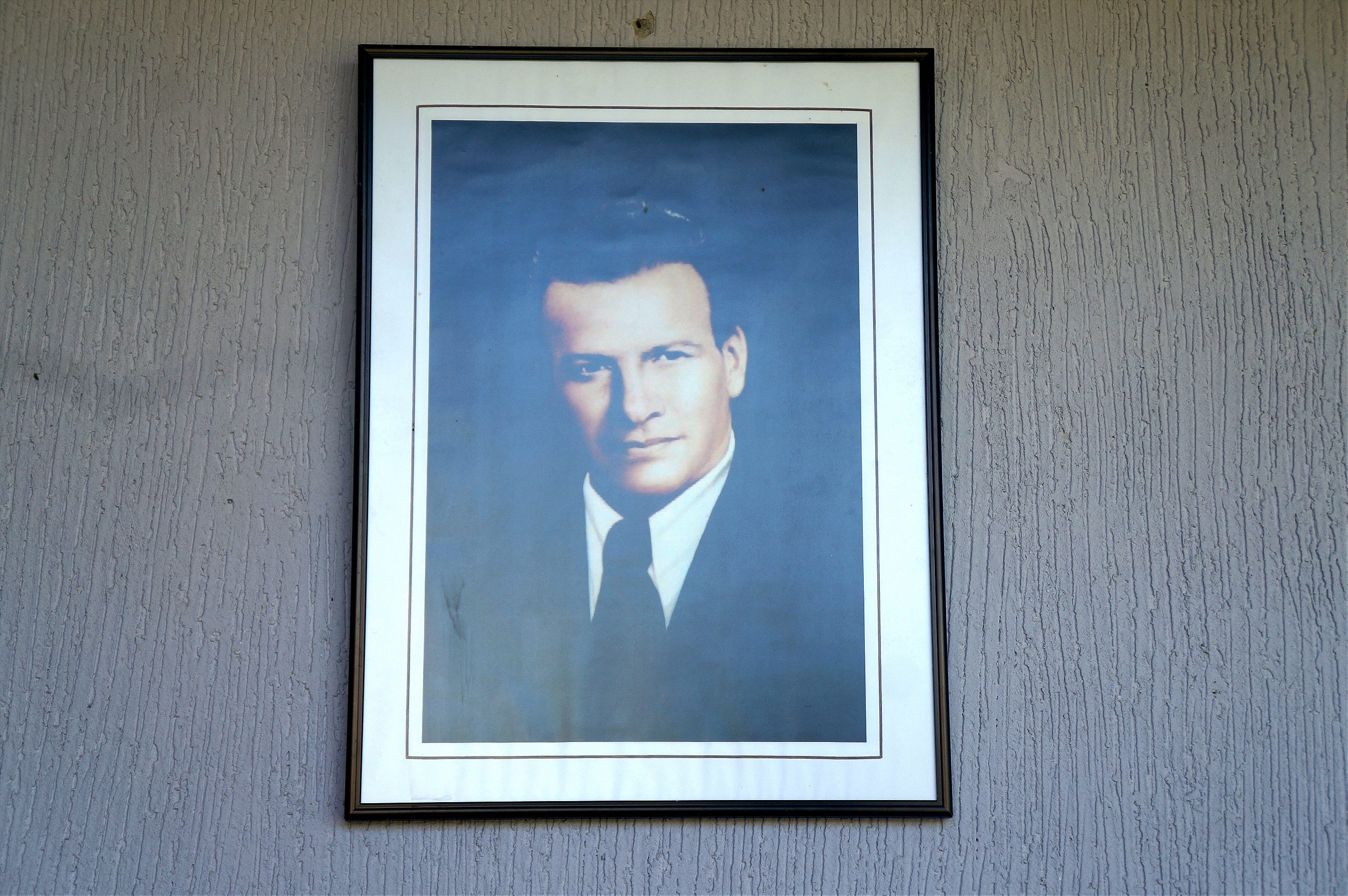
I had met a few of them on a bus headed to a protest against hydroelectric-dam developments on Colombia’s largest river. I was writing a story about displacement and development in the country and was taken with our long conversations about ethical agriculture and the more awful effects of U.S. intervention in Latin America. We marched with people from communities in the department of Huila who were being displaced and, in Spanish, we chanted a song that ended with, “All transnational companies, get out of our country!”
I am not Colombian, but rather from the belly of the starred and striped beast. Still, they accepted my solidarity. They called me Alejandra or niña and when I asked if I could stay with them for the holidays, they convened, discussed and approved.
A few days before Christmas, I waited along a dirt road at a service station called Criollos in the Southwest of Colombia. After about 20 minutes, a Shamanist with the spirit name of Practi arrived and drove me up the mountain to Las Lajas. The farm was established 17 years ago by the founders of the movement. Today, 12 Shamanists live there and between 30 and 40 others live on a nearby farm. Residents stick to their territory, but they visit each other often, sometimes staying for weeks. The founders come by occasionally but spend most of their time teaching in Manizales.
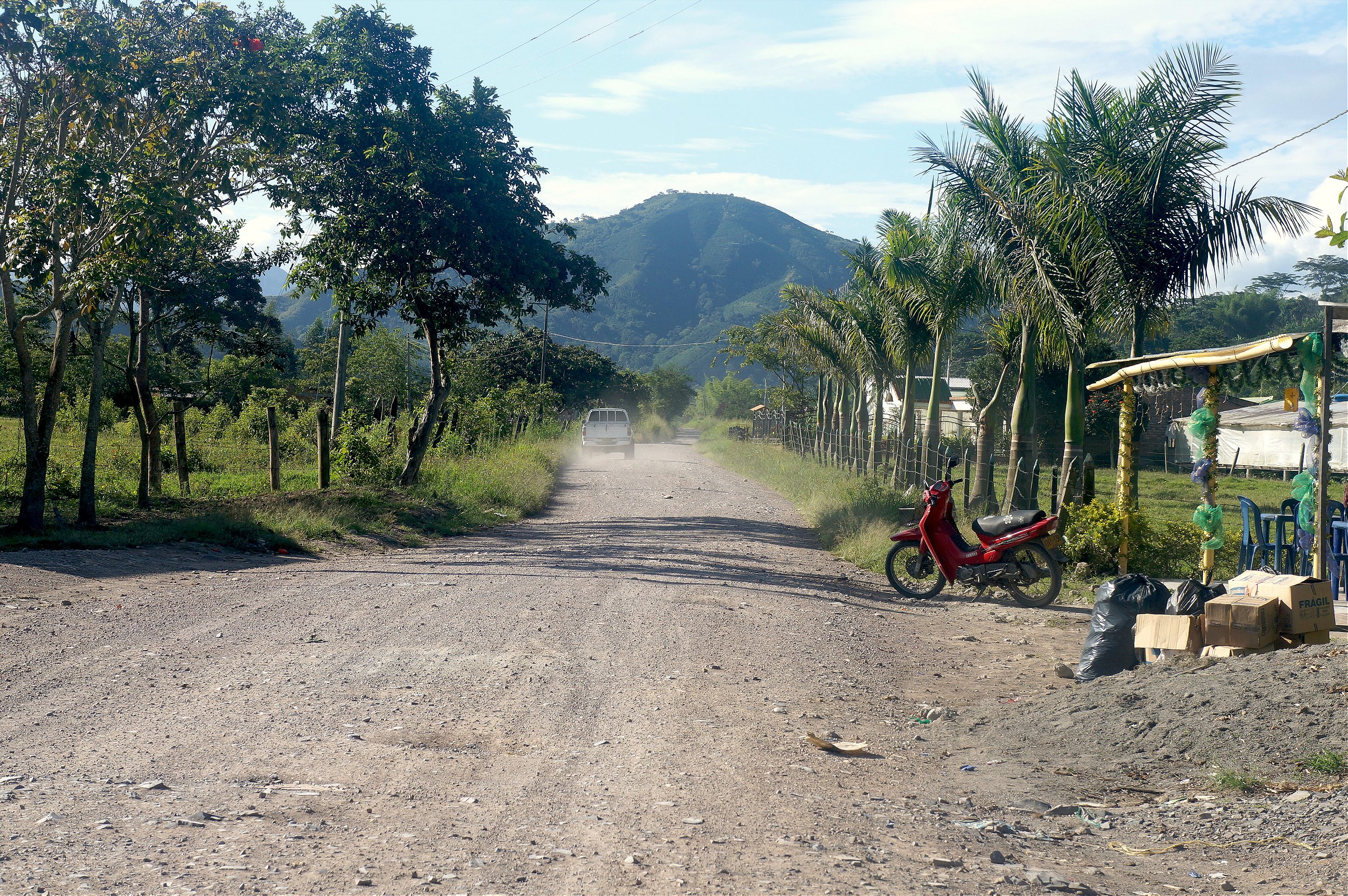
Las Lajas is made up of three houses and a temple stacked on the sloping face of a subrange of the Andes Mountains. The diversity of crops and forest stand out from the endless tapestry of surrounding coffee farms: the Shamanists grow most of the food they eat. They put me up in a house made of Guadua, a material much like bamboo, where I could see the trees and sky and hear birds and bugs through the gaps between each stalk. A book by Aun Weor sat on a shelf, and a picture depicting the Hindu Deity Krishna fighting the snake Kaliya hung on the wall.
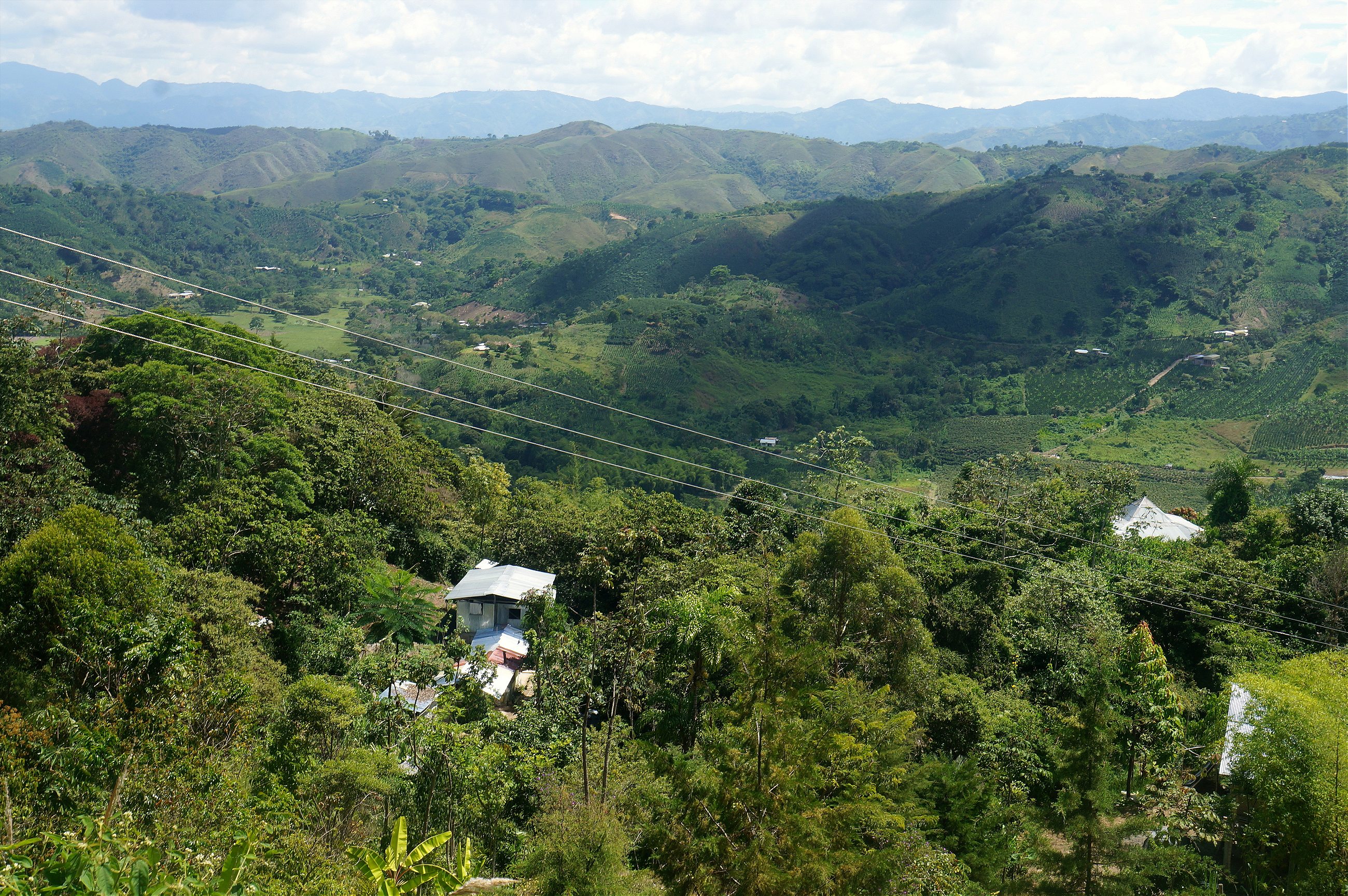
One of the women, with the spirit name Yuisa handed me a glass of guanabana juice and sat down to talk with me in the Shamanists’ characteristic soft tones and unbroken eye contact. Prior to arriving to Las Lajas four years ago, Yuisa had all of the staples of western fulfillment. “I had a car, a house, a job but it didn’t mean anything,” she explained. She had a son at a young age and was consumed with supporting them both. She found the Shamanists at local meetings in her hometown of Manizales, and when her son reached his teens, they both participated in a ceremony where yagé, a hallucinogenic and medicinal tea of Psychotria plants (also known as ayahuasca south of the Putumayo region of the Amazon) was served. As she reached her forties and her son got older and moved away, she transitioned to a new life, preoccupied solely with her new spirituality.
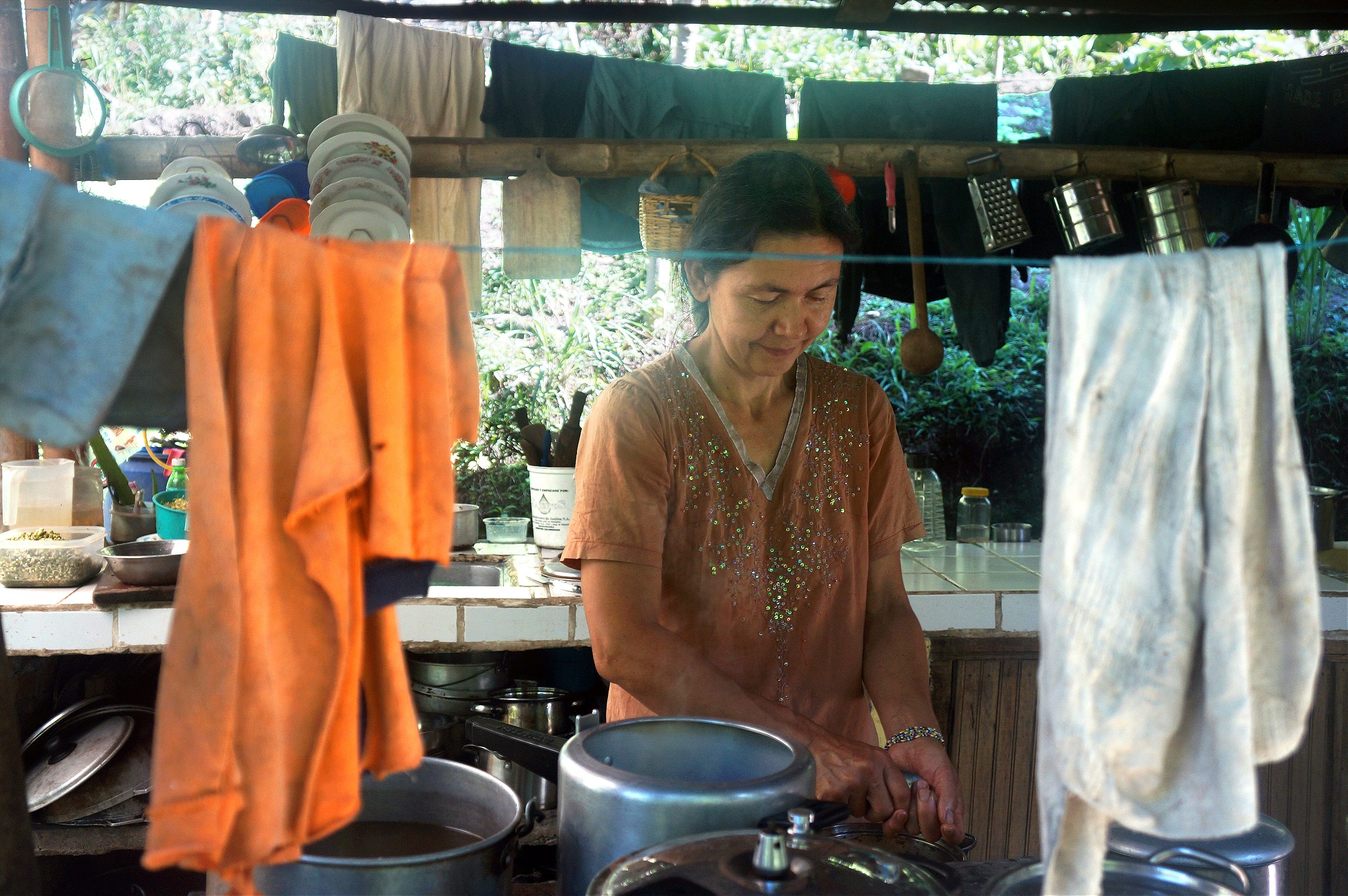
Some have left their lives way behind. One man from Northern Ireland told me he didn’t know if he would ever be ready to go back again. “Sometimes I think it would be nice to see Ireland again,” he said, “but I really don’t think about it much.”
After a lot of talk about the immaterial, Yuisa told me she would prepare a plant bath. What I took to be a strange euphemism for watering the plants actually turned out to be a bucket of hot water with mint, citronella and verbena. I was instructed to clean myself of city energy. I was entering their world.
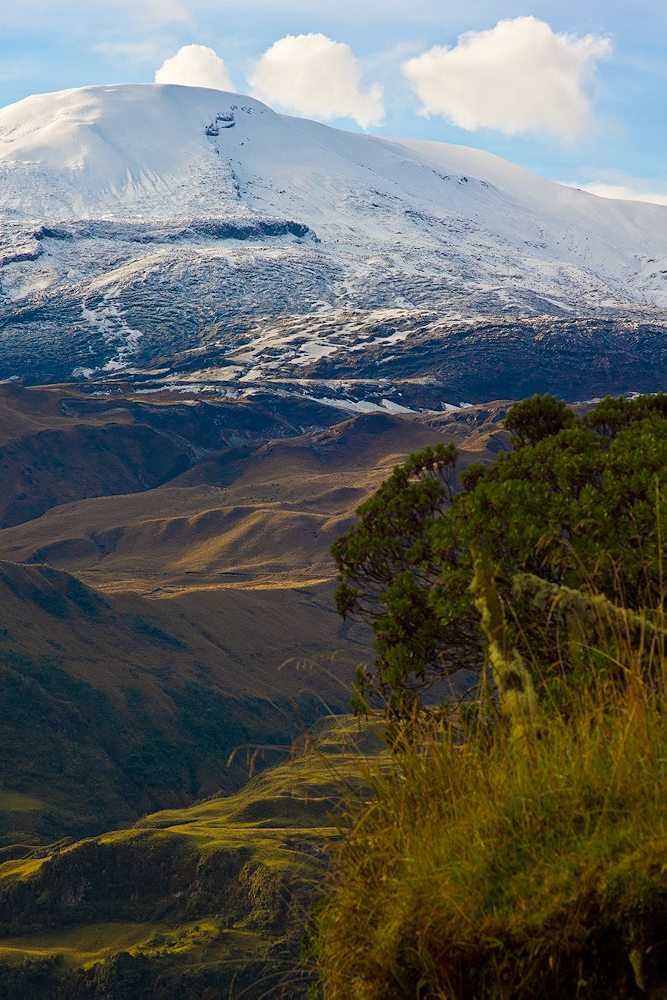
When I crawled into bed on that first night, I was exhausted and felt certain of two things: that I had overestimated my interest in listening to people talk about their spirituality all day, and that I would not be able to endure the full week and a half that I had committed to.
During the next few days, I threw myself into learning about their plants. They showed me African Khat and Mexican Jurema shrubs, everything with a medicinal, sometimes psychotropic, use. They explained the medical properties of Amazonian fruits, tubers and different beans and talked at length about sacred plant knowledge being lost to development and globalization. Not far from the farm, one of the new hydroelectric dams they were protesting is nearing completion, and it encroaches on an Amazonian forest reserve.
Each day, I helped garden, bake, clean and listened to the different circumstances that had brought each person to Las Lajas. Collectively, it seemed to do with a disdain for materialism, mainstream expectations of life-work-death, and, like Juisa, very endearing experiences drinking yagé tea.
Our pace of life was relaxed and as days went on, time mattered less and less. Only one or two of the Shamanists went into town during the week and it was usually just for an afternoon to sell bean sprouts or to pick up materials needed on the farm. Meditation took place in unconventional spaces and in unconventional ways, while weeding and while singing. In the morning, everyone greeted me with a “Hare Krishna!” If I asked how someone was, it was always met with: “Great, thank God!” We ate lunch at 4 p.m. and were in bed by 8 p.m. No one was frantic or stressed out about anything and I didn’t witness a tense moment between them.
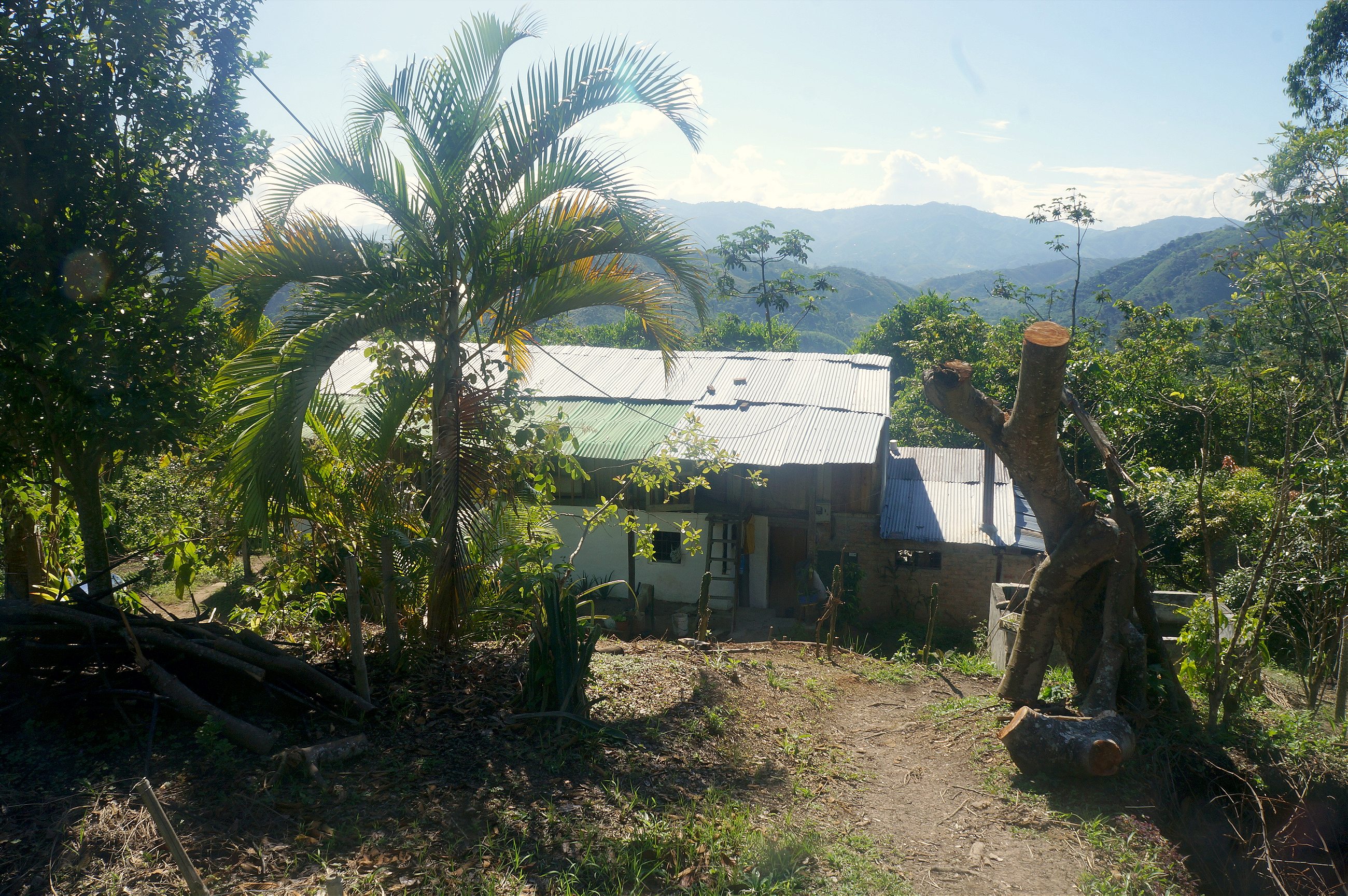
During walks, we talked about the Shamanist belief in reincarnation, telepathy and “the great planetary purification” wherein they believe humanity will be forced, in an unknown time, to choose a revolution of consciousness (i.e. the Revolutionary Gnosticism of the Consciousness of Krishna) or be left behind in a world that destroys itself. According to information from the Shamanists website, about 10 percent of humanity will be redeemed.
In the evenings, we would sit in a circle in the wooden temple, surrounded by pictures of Jesus, Krishna and indigenous peoples of South America or in one of the houses, chewing coca leaves, some smoking unfiltered cigarettes. We talked about bizarre conspiracy theories involving the U.S. government and extra-terrestrials, and I could see it was easy to conceive of both when you live tucked away in a sub-tropical mountain range and your country has been irrevocably damaged by U.S foreign policy. When the theories got too weird or someone mentioned the Illuminati, I would buffer corroborating by repeating what the person before me had said, in an inquisitive way. “Really didn’t land on the moon?” or “In Area 51 you say?” The Shamanists watch many documentaries.
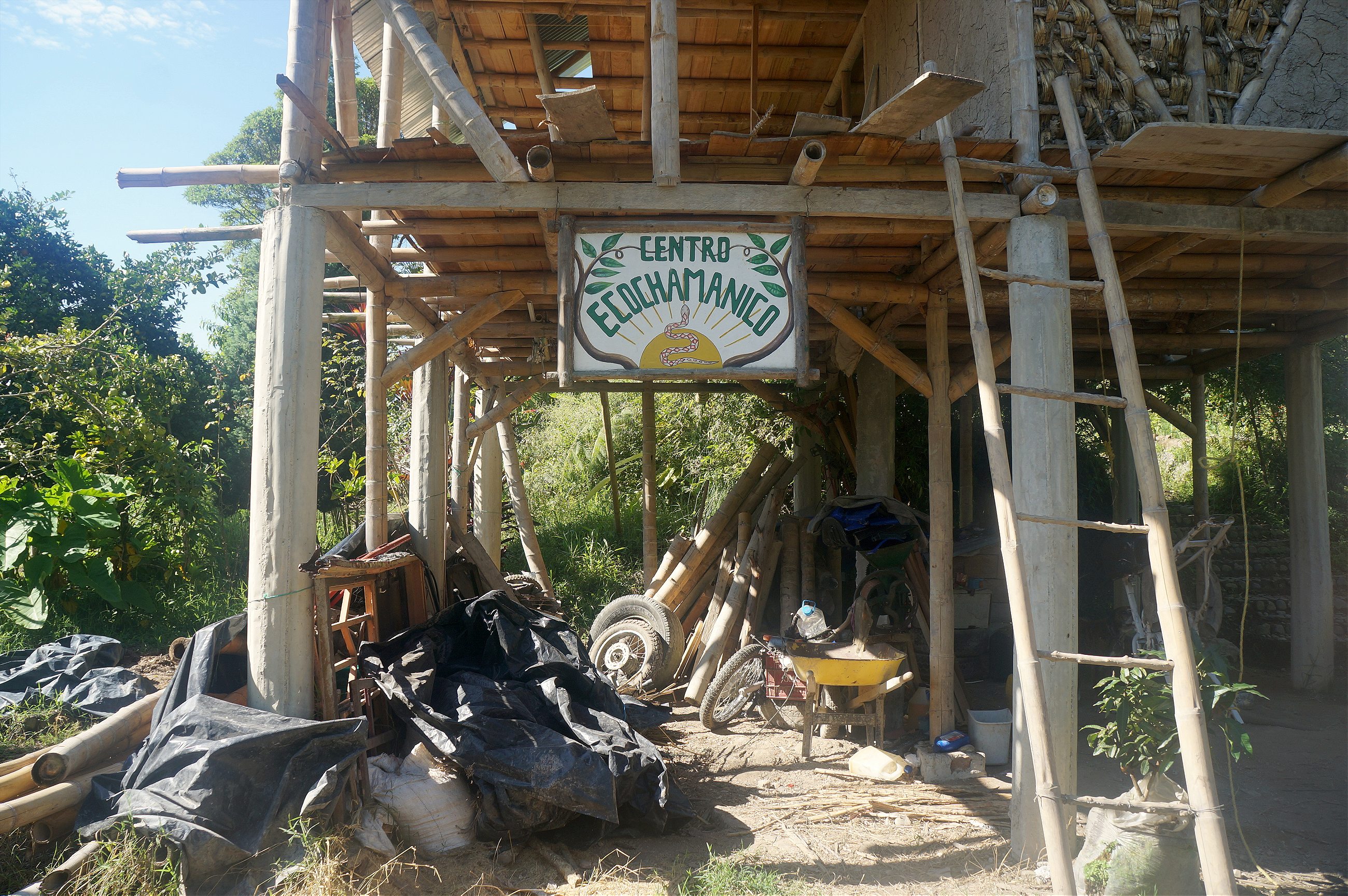
Despite the cultish nature of it all and the exhaustive conversations about their God, I never felt like I was being indoctrinated, though I do think they would have liked to hear that I was coming around. I never felt uncomfortable. They always asked if I was full enough, if I slept well enough, they asked me questions about myself and listened with what I can only describe as caring intensity.
On the evening of Christmas Day, we all dressed in white and lay in the temple drinking yagé. For the Shamanists, the hallucinogenic tea is a way to cleanse the body and connect with the inner self and divine spirits.
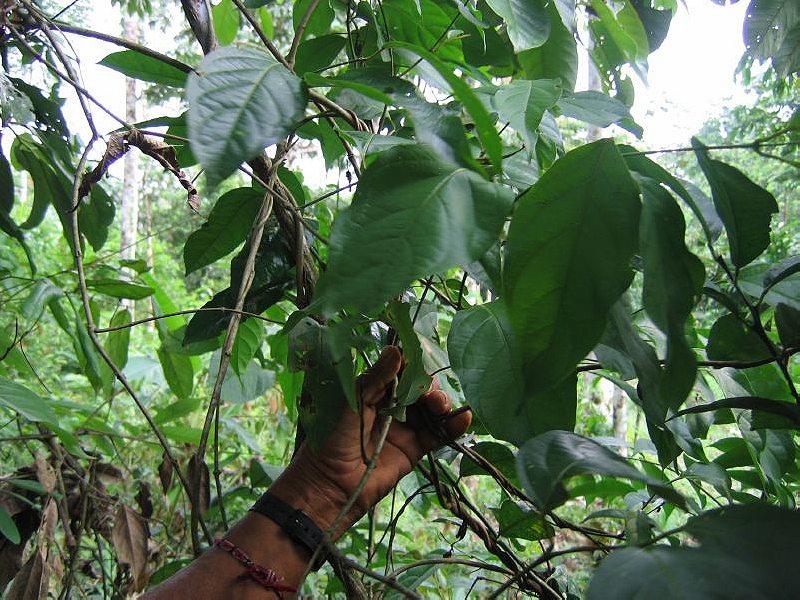
Some played wooden flutes and bongos and sang “Hare Krishna Hare Rama” between intermittent bouts of vomiting – the cleansing part. I experienced magnificent colors from the candles in the room and everything appeared to be vibrating like collective energy and kinetic art. In the days following the yagé ceremony, that puritanical North American insistence on earning everything including happiness was shattered for me. For the first time probably since early childhood, I felt like I very simply had a right to be happy, just as I had a right to breathe air as a living being.
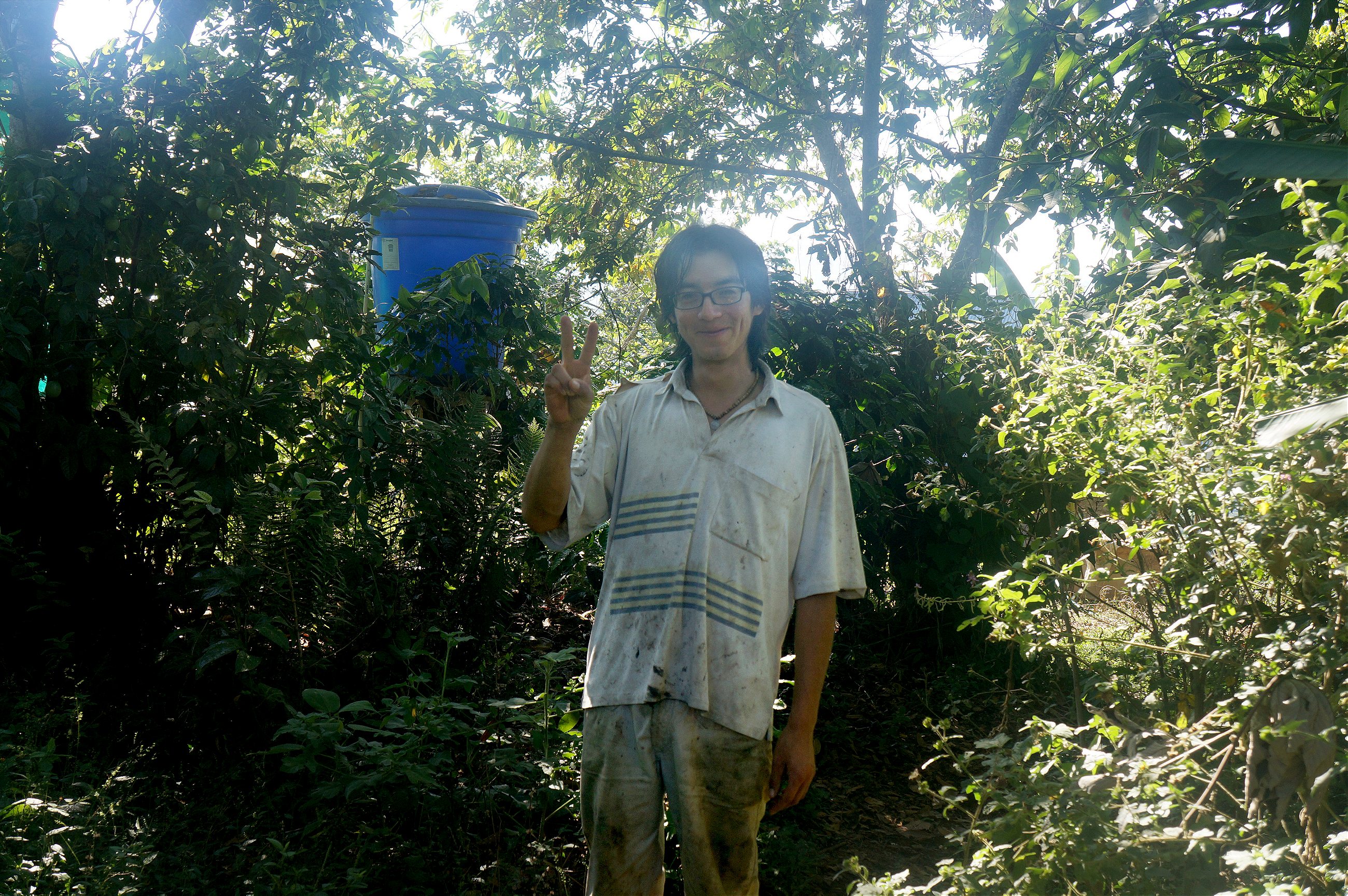
Questions about my own spirituality seemed more important to explore, less vain, and I was ready to be by myself again. True to my prediction to myself on that first night, I left a few days early, but not to tune out from ideas related to the ethereal, but to tune in to my own. On my last day, one of the Shamanists whom I had grown closest to invited me to stay longer, for as long as I liked, reminding me that I still had much to learn and that others had left lives behind and I could to. But as much as I felt that there was something very genuine in what they have found there together, in their plants, in the rhythm of their day-to-day lives and in the serene madness of it all, I couldn’t stay.
Perhaps it was all still Piscean and I was unwilling to forgo conventional thinking, or perhaps I was missing my chance to evolve with the great planetary purification. I left the farm and began descending the mountainside on foot, down to the dirt road and beyond, to make peace with the other mad world from which I’d come.